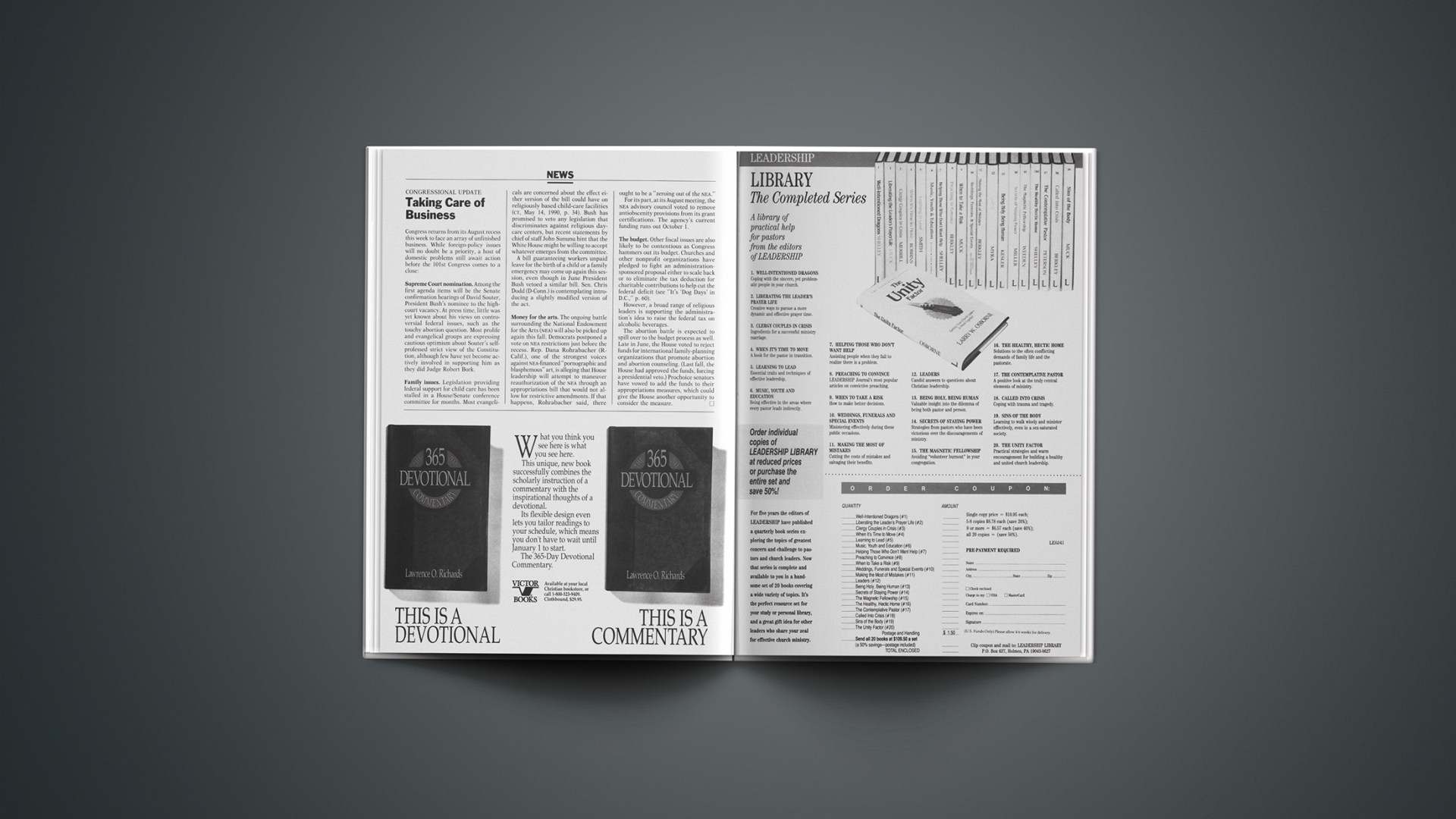Congress returns from its August recess this week to face an array of unfinished business. While foreign-policy issues will no doubt be a priority, a host of domestic problems still await action before the 101st Congress comes to a close:
Supreme Court nomination. Among the first agenda items will be the Senate confirmation hearings of David Souter, President Bush’s nominee to the high court vacancy. At press time, little was yet known about his views on controversial federal issues, such as the touchy abortion question. Most prolife and evangelical groups are expressing cautious optimism about Souter’s self-professed strict view of the Constitution, although few have yet become actively involved in supporting him as they did Judge Robert Bork.
Family issues. Legislation providing federal support for child care has been stalled in a House/Senate conference committee for months. Most evangelicals are concerned about the effect either version of the bill could have on religiously based child-care facilities (CT, May 14, 1990, p. 34). Bush has promised to veto any legislation that discriminates against religious day-care centers, but recent statements by chief of staff John Sununu hint that the White House might be willing to accept whatever emerges from the committee.
A bill guaranteeing workers unpaid leave for the birth of a child or a family emergency may come up again this session, even though in June President Bush vetoed a similar bill. Sen. Chris Dodd (D-Conn.) is contemplating introducing a slightly modified version of the act.
Money for the arts. The ongoing battle surrounding the National Endowment for the Arts (NEA) will also be picked up again this fall. Democrats postponed a vote on NEA restrictions just before the recess. Rep. Dana Rohrabacher (R-Calif.), one of the strongest voices against NEA-financed “pornographic and blasphemous” art, is alleging that House leadership will attempt to maneuver reauthorization of the NEA through an appropriations bill that would not allow for restrictive amendments. If that happens, Rohrabacher said, there ought to be a “zeroing out of the NEA.”
For its part, at its August meeting, the NEA advisory council voted to remove antiobscenity provisions from its grant certifications. The agency’s current funding runs out October 1.
The budget. Other fiscal issues are also likely to be contentious as Congress hammers out its budget. Churches and other nonprofit organizations have pledged to fight an administration-sponsored proposal either to scale back or to eliminate the tax deduction for charitable contributions to help cut the federal deficit (see “It’s ‘Dog Days’ in D.C.,” p. 60).
However, a broad range of religious leaders is supporting the administration’s idea to raise the federal tax on alcoholic beverages.
The abortion battle is expected to spill over to the budget process as well. Late in June, the House voted to reject funds for international family-planning organizations that promote abortion and abortion counseling. (Last fall, the House had approved the funds, forcing a presidential veto.) Prochoice senators have vowed to add the funds to their appropriations measures, which could give the House another opportunity to consider the measure.










